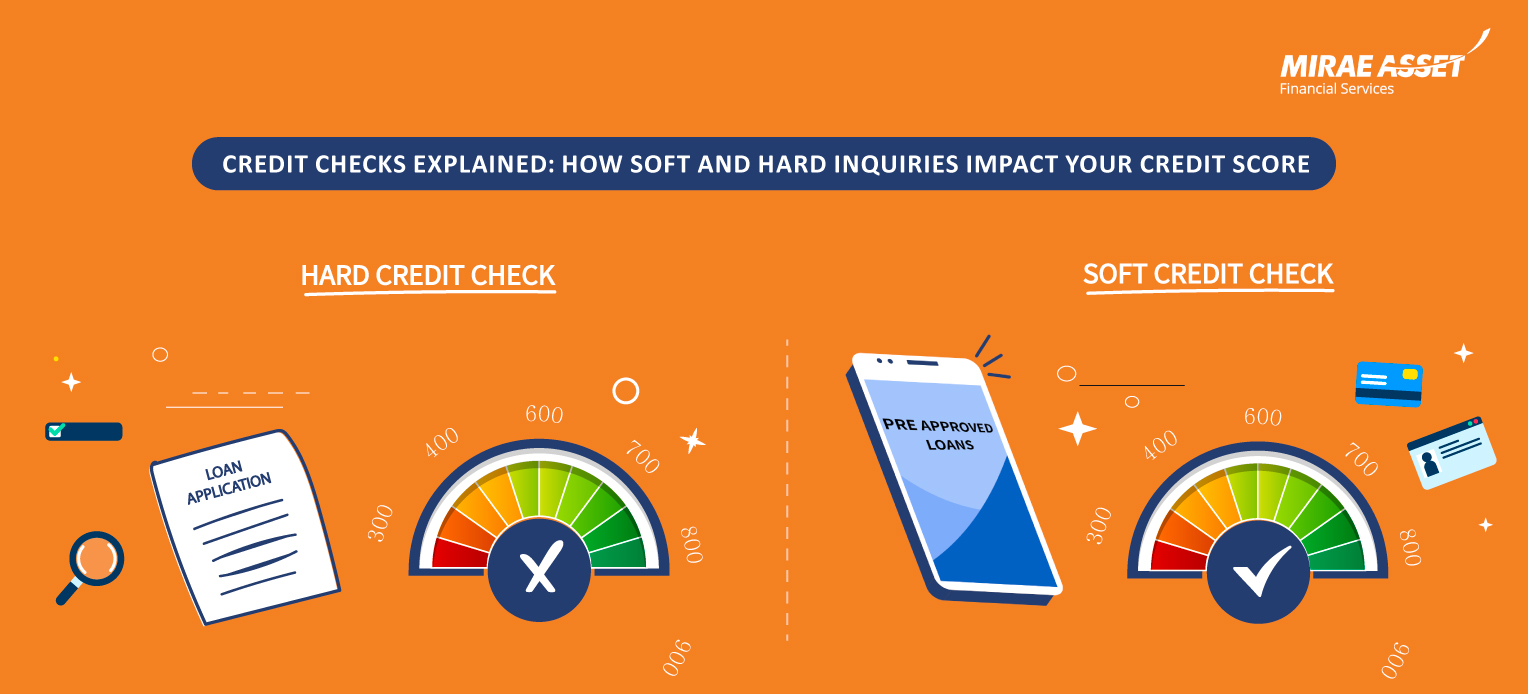Credit Checks Explained: How Soft and Hard Inquiries Impact Your Score

Imagine checking your credit report and finding a loan you never applied for—it’s a pretty unsettling scenario. Regular soft credit checks can help you steer clear of such surprises. When managing your finances, especially during loan applications or credit score reviews, you’ve probably come across the terms “soft credit check” and “hard credit check.” While these terms may seem familiar, understanding the difference between them is essential, as each can influence both your credit score and your chances of getting approved for loans.
What is a Credit Inquiry?
A credit inquiry occurs when a lender or individual examines your credit history. This report provides a comprehensive snapshot of your financial behavior—how many loans you’ve taken, the credit cards you hold, and whether you’ve made timely payments. It’s an important factor in determining your creditworthiness.
But not all credit inquiries are same. Let’s break down the differences between soft and hard credit checks.
What is a Soft Credit Check?
A soft credit check, also known as a soft inquiry, happens when a lender or company looks at your credit report as part of a general review—without delving too deep into the specifics. Importantly, soft inquiries do not impact your credit score.
You might initiate a soft credit check when you check your own score, or it may happen when companies review your credit to offer pre-approved loans or credit cards. These checks offer lenders a quick glance at your financial habits without harming your creditworthiness.
When Do Soft Credit Checks Happen?
- Pre-Approved Credit Offers: Companies perform soft inquiries to assess if you qualify for pre-approved credit card or loan offers.
- Personal Credit Monitoring: Any time you check your own credit score or use credit monitoring services.
What is a Hard Credit Check?
A hard credit check, or hard inquiry, occurs when a lender retrieves your credit report from a credit bureau to assess your eligibility for a loan. This inquiry leaves a mark on your credit report, serving as a transparent record of the lender’s review.
While multiple hard inquiries within a short time frame can lower your credit score, maintaining a strong repayment history and demonstrating responsible credit management can help offset any negative effects over time, gradually restoring your score.
When Do Hard Credit Checks Occur?
- Loan Applications: When applying for personal loans, home loans, car loans, or any type of credit.
- Credit Card Applications: When you apply for a new credit card.
How Do Soft and Hard Credit Checks Impact Your Financial Health?
The key difference between these inquiries is their effect on your credit score. Soft inquiries are risk-free, allowing you to check your score without penalty. Hard inquiries, on the other hand, can reduce your credit score by a few points—especially if they occur frequently in a short span.
For example, if you’re applying for several loans or credit cards in a short period, each hard inquiry could slightly reduce your score. However, many credit scoring models will bundle multiple inquiries for the same type of loan (such as a home loan) if they occur within a short time frame, treating them as a single inquiry to allow for rate shopping.
The Impact on Loan Approvals
Maintaining a high credit score through responsible financial behavior makes you an attractive borrower, often leading to better loan terms and lower interest rates. Lenders consider the number of inquiries on your report as one of many factors when assessing your loan eligibility. Too many recent hard inquiries may signal financial distress, potentially leading to denied applications or less favorable loan terms.
Staying Vigilant
It’s a good habit to regularly check your credit report for accuracy. If you notice unauthorized hard inquiries, you can dispute them with the credit bureau directly. For further assistance, the Consumer Financial Protection Bureau (CFPB) can guide you through the process.
Keep in mind, only unauthorized hard inquiries can be disputed. Legitimate hard inquiries will stay on your report for about two years before falling off.
Conclusion:
Soft inquiries let you track your credit score without affecting it, while hard inquiries come with a more significant impact. By being selective and strategic about when you apply for credit, you can protect your score and present yourself as a responsible borrower. With a little planning, you can ensure your credit stays strong and your loan approval odds remain high.
